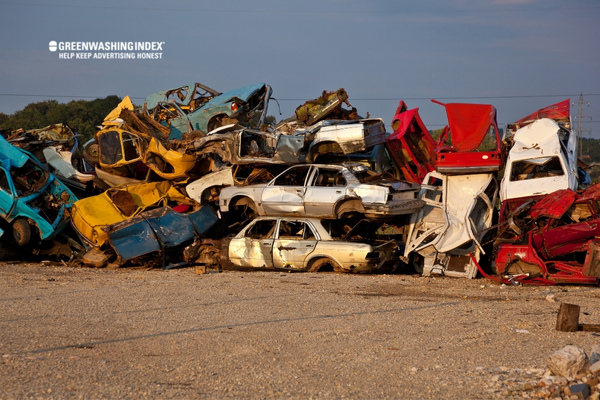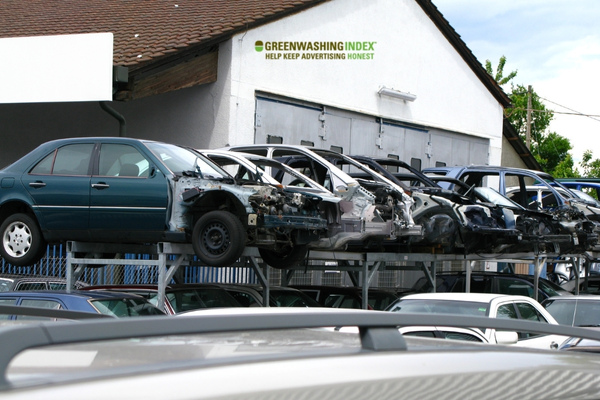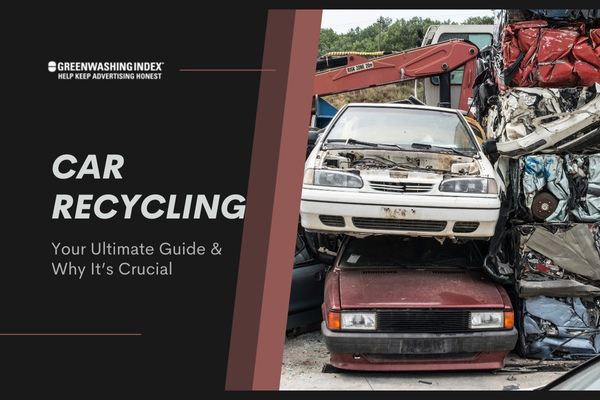Have you ever stared at an old, junked car and wondered what happens to it after being towed away? Let me tell you something – not all vehicles reach the end of their life in a graveyard. The concept I am talking about is car recycling. This guide will ignite your curiosity and get into the nitty-gritty of automotive sustainability, particularly how recycling old vehicles can help reduce the environmental impact of car disposal.
So, why does car recycling matter? It’s simple. Every vehicle will reach its expiry date at some point. But when that time comes, rather than leaving these forsaken autos to rust and wreak havoc on our environment, we can give them a new lease of life through car recycling. This not only safeguards our ecosystems from harmful pollutants but also holds tremendous economic benefits by reusing valuable components and metals.
What You’ll Discover In This Article:
- The step-by-step process behind the wonders of car recycling
- Components that can be successfully salvaged in any vehicle
- The profound environmental and economic benefits of automotive sustainability
- Essential steps on preparing your vehicle for recycling
- How to choose a reputable recycler for your end-of-life ride
Understanding Car Recycling
Car recycling, a significant part of automotive sustainability, is a complex yet essential function that reduces our environmental impact and contributes positively to our economy. So what exactly is car recycling and what does it entail?

The Process of Car Recycling
Car recycling begins the moment I decide that I have no further use for my old or damaged automobile. From there, the journey can be broken down into several key steps:
- Removal of Fluids: The first thing to be removed is the various fluids such as oil, coolant, and fuel which can pose significant environmental hazards if not properly managed.
- Dismantling of Parts: Once all fluids are depleted, reusable components like tires, batteries, and glass parts are carefully dismantled.
- Recovery of Metals: The metal frame or the bodywork of the car is then crushed or shredded for metal recovery.
- Sorting and Classification: These metals are sorted into ferrous (iron-based) and non-ferrous (non-iron-based) materials.
- Metals Melting: The sorted metals go through intense heat in furnaces where they are smelted down to form raw materials for new products.
Lastly, these recycled materials make their way back onto production lines as renewed resources.
Components That Can Be Recycled
Almost every part of a car that you see or don’t see can find its way back into usage through recycling old vehicles:
- Tires can be repurposed for playground mulches or used in civil engineering applications.
- Engines can be broken down with their metal components efficiently re-used in new car productions.
- Batteries, being highly recyclable, often end up as newly manufactured ones.
- Even your old car seats’ fabric after adequate cleansing could find a second life elsewhere as carpet paddings!
I find it quite amazing just how much of my “old” car can benefit others and play a part in reducing wastefulness and overconsumption. Knowing this makes the idea of car recycling an enticing prospect to seriously consider next time you ponder on what to do with your outliving vehicle.
Benefits of Car Recycling
Car recycling is not just getting junk cars off your hands. It comes with a myriad of benefits that, personally, left me astounded when I first came across them. It significantly contributes to the environment and our economy in ways you probably never envisioned before. Let’s take a closer look.
Environmental Impact
We live in an era where climate change has become one of the most significant threats to our existence. Guess what? Car recycling plays an instrumental role in combating this crisis.
- Reduction of Waste: Did you know a staggering amount? Around 12 million vehicles are disposed of annually just in the United States! Fortunately, car recycling diverts substantial amounts of waste from landfills every year thus helping reduce soil contamination.
- Conservation of Resources: When old vehicles are recycled, many parts are reused or melted down to produce new car components or other metal products. This would mean less mining for fresh materials — reducing environmental degradation cumulatively caused by these activities.
- Energy Saving: Producing new parts from raw materials consumes significantly more energy than using recycled metals. So indirectly “recycling old vehicles” saves on energy as well.
Economic Benefits
The wonders of car recycling don’t stop at environmental sustainability; it extends into the economic sphere as well!
- Job Creation: The ‘automotive sustainability’ sector has led to substantial job creation – more individuals working translates into lower unemployment rates and healthier economies.
- Profitable Recycling: You can sell your old clunker for cash! Yes, you heard that right – recyclers pay for certain components and scrap metal — it’s like striking gold! Plus, people also make savings when buying used parts rather than spanking new ones – wallet-friendly AND eco-friendly!
Car recycling thus intertwines environmental responsibility with economic advancement. As one might say, it’s a “win-win” from both perspectives creating an ‘Impactful Environmental way’ and reducing the ‘environmental impact of car disposal’. So hand over that rusty old banger to the recycling hands today and contribute to a brighter and more sustainable future for all.
How to Prepare Your Car for Recycling?
Before diving into the world of car recycling, there are a couple of steps you need to take. The process is not as simple as merely handing over the keys to a recycling company. At this point, you might be asking, “How can I prepare my car for recycling?” I’m glad you asked.

Removing Personal Belongings
The first step in preparing your car for recycling is something we all do before moving out of a house – packing up personal belongings. Although it may seem a little unusual to think of your vehicle in the same way as a home, believe me, our cars can become treasure troves without us even noticing.
- Full inspection: You must thoroughly inspect your vehicle from top to bottom before handing it over for recycling. The glovebox alone often hides items like insurance cards or receipts that contain potentially sensitive information.
- Check hidden corners: Some vehicles have secret compartments or spaces where items could unintentionally get trapped; under seats and inside side pockets are common hotspots.
- Don’t forget documentation: While checking for personal belongings, remember not to accidentally toss out crucial papers like registration documents or service records – these will come in handy when transferring ownership!
Remember:
- Your trunk should be empty completely.
- Remove any GPS devices and clear memory slots in built-in systems.
- Don’t forget about old CDs left in players!
Imagine standing at the doorstep of the recycling yard and realizing you’ve left your high school mixtape CD still jammed in the player—complete heartbreak! To avoid such moments (and trust me- it’s worth avoiding), ensure all personal belongings are removed from your vehicle.
Transferring Titles
Since we’re on the topic of removing important documents incidentally while clearing out our cars: let’s talk about another essential aspect – transferring titles. Imagine giving away your car without properly signing it off. That’s a legal headache waiting to happen. Here’s how you can ensure a smooth title transfer when giving out your car for recycling.
- Understand the regulations: First things first, understand your local laws concerning vehicle ownership and title transfers because they vary from place to place. You might need to physically go down to the Department of Motor Vehicles or similar regulatory bodies in your country.
- Prepare relevant documents: Always keep handy the vehicle’s certificate of title and any loan payoff documents if relevant.
- Follow the procedure: Complete the assignment section on the rear of the certificate by entering the assignee’s name and address (it could be individual or recycling company), odometer information, selling price (or put ‘gift’ if no money changes hands), date of sale, and your signature.
You see, preparing your car for recycling isn’t as tedious as it sounds. It can be quite simple once you know what steps to take! Just remember, thoroughness is key! Our beloved vehicles have served us well over their life span; it is only fair we end their journey with respect – especially when they are heading towards automotive sustainability through recycling.
Choosing a Reputable Car Recycler
When it comes to car recycling, not all services are created equal. It’s essential to choose the right professional who’ll uphold automotive sustainability practices and decrease the environmental impact of car disposal. If you’re unsure about what to consider before recycling old vehicles, don’t worry; I’ve got your back!

Things to Consider
Here’s a list of specific criteria that every car owner should consider prior to selecting a car recycler:
- Certifications: Look for recyclers certified by recognized bodies like The Institute of Scrap Recycling Industries (ISRI) and the Automotive Recyclers Association (ARA).
- Environmentally Friendly Practices: Ensure their methods align with environmental regulations. They should have eco-friendly procedures for disposing of hazardous waste collected during the process.
- Equipment and Technology: Do they have up-to-date equipment? Modern technology helps in more efficient extraction of useful materials.
- Customer Reviews: Previous clientele experiences can highlight aspects like promptness in service, and providing fair market prices, among other factors.
Moreover,
- Get free quotes from different recyclers;
- Evaluate if the offered price is justifiable for your vehicle’s age and condition;
- Verify they’ll handle DMV paperwork for transferring titles.
Questions To Ask a Reputable Car Recycler
Before entrusting anyone with your vehicle, clarifying specific points will ensure smooth sailing. Here are some crucial questions you might want to ask:
- Can you tell me about your recycling process?
- Do you offer home pick-up or should I drop-off?
- How do you calculate the worth of my vehicle?
- Will you handle all my paperwork for title transfer?
Finally,
- Confirm if there are any hidden fees;
- Find out about their policy on parts reuse or reselling.
By gathering all these details systematically, choosing who’ll undertake your car recycling becomes less daunting and more constructive! Remember, it’s about more than just getting rid of a car; it’s about contributing to a more sustainable environment.
Now that you’re armed with useful pointers, go ahead and choose your ideal car recycler. Your automobile deserves the best farewell!
FAQs
What happens to my old car after recycling?
Post car recycling, your discarded vehicle is transformed into valuable raw material. From re-purposed parts to metal being utilized in new products, everything is used to its full potential.
Are all parts of the car recyclable?
While a considerable portion of your vehicle can be recycled, not every part is recyclable. Items like rubber, plastic and liquids need specialized treatment but materials like metal are predominantly reused.
How long does the recycling process take?
The duration depends largely on the methodology and efficiency of the recycler. However, typically it may take a few days to completely recycle an old vehicle.
Can I earn money from car recycling?
Yes indeed! Recycling centers often pay for scrap metal and various reusable parts within your discarded vehicle. The amount varies based on factors like market conditions and the state of the scrapped parts.
Conclusion
The world of car recycling is an ever-evolving industry that plays a critical role in our push toward automotive sustainability. No longer are cars just dumped in landfills, instead, they’re given a second life through recycling old vehicles.
Not only does this practice decrease the environmental impact of car disposal, but also drives economic growth. We’ve now seen how to prepare our cars for recycling and the importance of choosing a reputable car recycler.
Key Takeaway Points:
- Car recycling is an essential part of automotive sustainability.
- Recycling old vehicles reduces the environmental impact and spurs economic progression.
- Prepare your vehicle properly for recycling and ensure to choose a reliable recycler.



